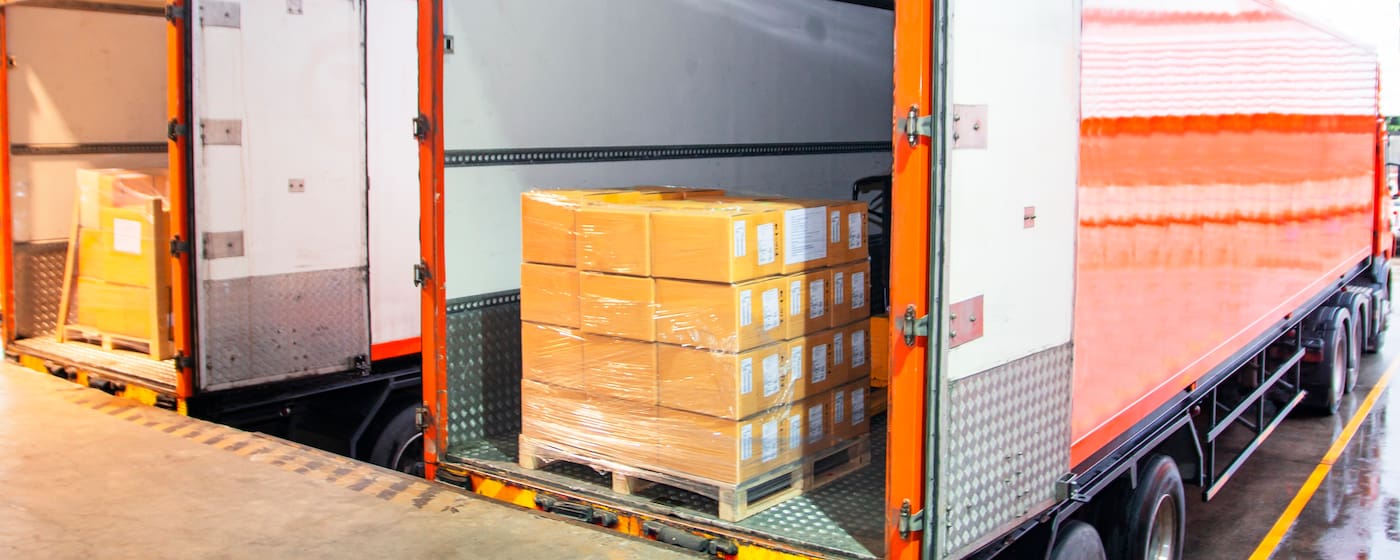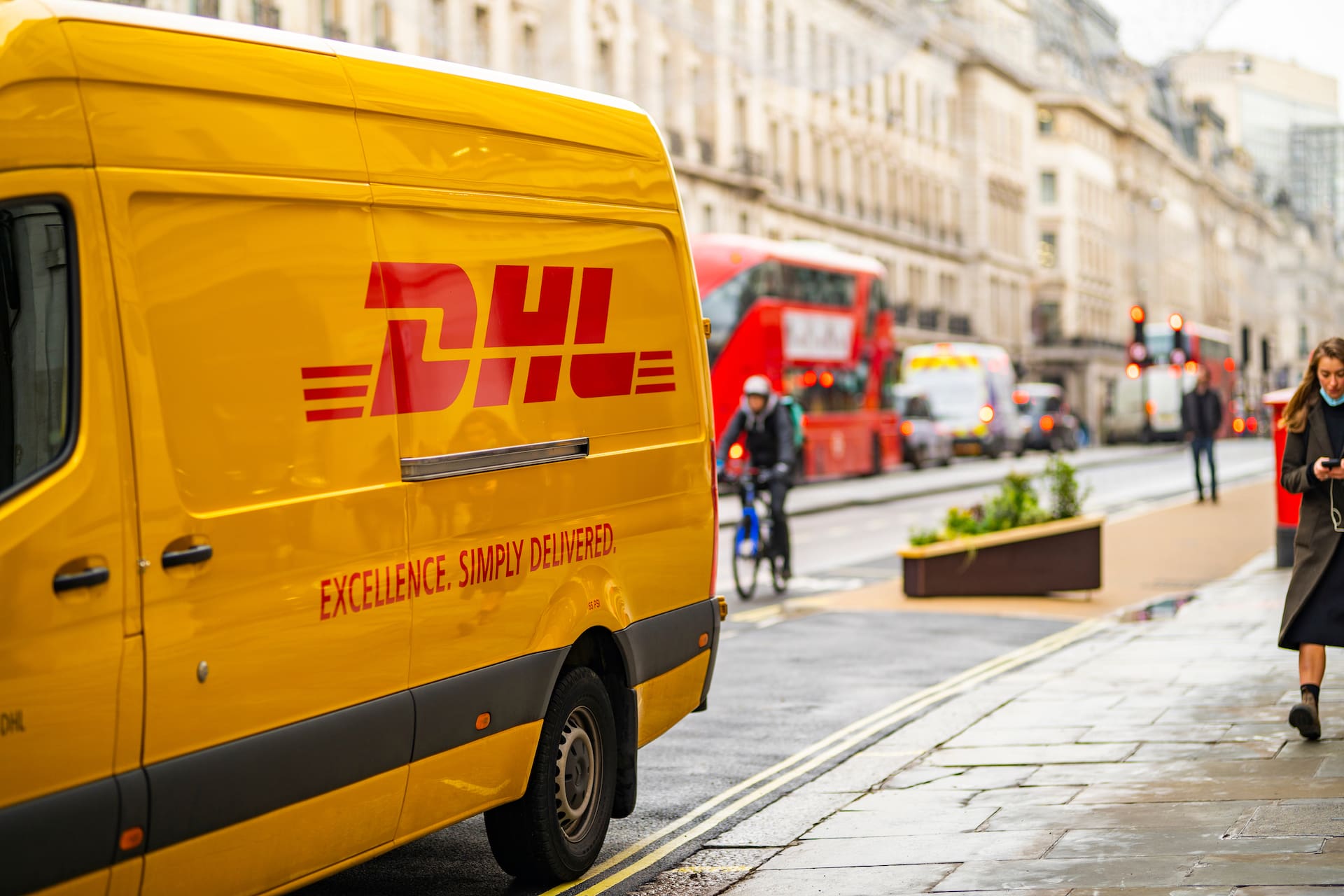As you start to grow your online business and expand into international markets, its important to ally with partners that provide specific expertise, such as an omnichannel fulfilment provider and/or a reliable accounting partner.
Why? Because navigating international shipping taxes is a challenge. But before you delegate logistics and accounting to the experts, it’s helpful to understand the basics to better manage your business.
Let’s take a closer look at how UK tax rules and regulations work for online stores operating within or looking to expand into the UK.
UK taxes for ecommerce
Before you begin selling and shipping, you will want to familiarize yourself with how UK taxes work.
Here is a breakdown of the different types of taxes every UK business should be aware of.
Corporate tax
Corporation tax only applies to businesses registered within the UK.
If you are an overseas entity without a permanent establishment within the UK, then you will continue to pay corporation tax in your country of incorporation.
Currently, the UK corporation tax rate is 19%, but the rate is expected to increase to 25% starting in April 2023, affecting UK companies with profits of £250,000 and over.
Smaller UK companies with profits up to £50,000 will continue to pay corporation tax at 19%, with profits between these two figures being subject to a tapered rate.
This tax is to be paid on all its business profits from the UK and abroad.
Value-added tax (VAT)
Value-added tax (VAT) is a general-based consumption tax, which means it will be added to most products and services sold by VAT-registered businesses.
It must also be accounted for on goods imported into the UK by paying the correct import VAT amount.
The UK has three different VAT rates that can be added to products:
- Standard rate (20%) – Applies to most products
- Reduced rate (5%) – Some health products and car seats for children
- Zero rate (0%) – Food, books and children’s clothing
Merchants should apply the correct VAT rate depending on the product they are intending to sell.
Income tax
Income tax is paid to the UK government based on annual income.
You will pay income tax on the money you earn from employment and/or profits you make if you are self-employed.
Here is a breakdown of the payable tax rates:
| Personal Allowance | Up to £12, 570 | 0% Tax rate |
| Basic rate | £12,571 – £50,270 | 20% Tax rate |
| Higher rate | £50,271 – £150,000 | 40% Tax rate |
| Additional rate | Over £150, 000 | 45% Tax rate |
Note: Starting in April 2023, the higher rate band threshold reduces to £125,140 and the additional tax rate band reduces to £125,141.
National insurance
National Insurance (NI) is a tax on earnings and self-employed profits only applicable to UK tax residents.
Your NI contributions are paid into a fund, from which some state benefits are paid. Where applicable, the self-employed NI classes are paid via the self-assessment.
NI is deducted at a rate of:
- 12% for basic rate employees
- An additional 2% for higher rate employees
- 13.8% for employers
Depending on eligibility, certain employers may be able to apply for employment allowance that will cover the employers NI up to £5,000 per year.
NI is a statutory deduction that must be taken on any earnings above the earnings threshold, which varies depending on your salary income.
Pay as you earn (PAYE)
Pay as you earn (PAYE) deducts income tax from an employee’s pay.
Here are the three buckets of PAYE deduction rates:
- Basic rate of 20%
- Higher rate at 40%
- An additional rate at 45%, depending on the employee’s earnings where income tax percentages can differ between England, Scotland and Wales.
Both the NI and PAYE deductions only applies to employees that are residing in the UK as their permanent base.
Therefore the double tax treaty may need to be investigated if an employee works for a company in the UK but resides outside of the UK.
Dividend’s tax
A dividend is a payment made to company shareholders from retained earnings.
A common tax efficient practice for businesses is for directors to remunerate themselves through a combination of salary and dividends.
Salary is received equal to or below the NI threshold with the remainder received via dividends.
The business distributing dividends is not liable to tax on any dividends issued, however, the shareholder would need to pay income tax on the dividends they receive through a self-assessment.
Currently, shareholders can receive up to £2,000 tax free in dividends. For the 2023/24 tax year, this will be reduced to £1,000 tax free.
Dividends received by non-UK tax resident is not subject to UK income tax. However, you may be liable to pay income tax on the received dividends in your country of residence.
What are my VAT obligations?
Your VAT obligations will vary depending on several factors.
VAT-registered businesses must include the correct UK VAT rate on their products or services, which in most cases, will be 20%. This protects the end consumer from absorbing the payment instead of the seller.
All VAT-registered businesses must report their B2C and B2B ecommerce taxable sales and report any VAT they paid to other businesses. Usually, this must be reported to the HM Revenue and Customs department (HMRC) every 3 months.
UK incorporation is not mandatory for overseas sellers since non-UK businesses can trade in the UK by getting VAT-registered and registering a UK Economic Operators Registration and Identification number (EORI).
Overseas sellers vs. sellers established in the UK
UK-based sole traders and companies must register for VAT if their taxable turnover exceeds £85,000 per year.
Prior to this, registration is optional and would be necessary if merchants want to import products from overseas.
For businesses incorporated overseas, different scenarios will apply depending on certain factors, such as country of incorporation, sales channels, and inventory placement.
Additionally, there is not a set threshold for overseas sellers before needing to get VAT-registered.
Many fulfilment providers, like ShipBob, make it easy to bulk-ship inventory overseas and store in an international fulfilment centre.
If you’re an overseas merchants looking to store inventory in the UK, you will require a UK VAT registration to remain the owner of the products.
A VAT registration and UK EORI must be obtained prior to sending any products, as both numbers will be requested by the customs authorities when clearing shipments at the border.
By partnering with ShipBob, we’ve been able to not only ship from the UK but start shipping from a fulfilment centre in the US to fulfil in-country orders for a much cheaper shipping cost.
In the early stages of a brand like ours, we are focused on improving the customer experience. The customer comes first. We want them to get their product on time, intact, and with minimal shipping fees.
Will Kerr, Apparel Lead at Quadrant
Meeting VAT requirements
Meeting VAT requirements and staying tax compliant can be a tricky task since different rules will apply depending on the seller’s situation.
For those overseas, merchants looking to store inventory in the UK, sell via their online store, and remain as the owner of the products, VAT registration is required.
In this case, merchants should include the correct VAT rate in their retail price, complete their returns and remit the collected VAT from the UK sales.
For merchants looking to store outside of the UK but still want to do DTC sales, for sales where the consignment value is below £135, merchants must register for UK VAT, complete their returns, and remit the collected VAT to HMRC.
For sales where consignment value is above £135, there are two possible scenarios:
- The end consumer can be established as the importer of record. which means the products will be held at the border until they pay the correct import VAT and duties.
- Or, if the merchant wants to remain as the importer of record, they must account for the payment of import VAT and import duties, which will not be reclaimable unless they are registered for VAT in the UK.
How to register for VAT
VAT application processes are constantly changing. Before registering for a VAT, it’s advised that you contact a professional tax advisor to obtain the VAT registration and submit the returns in a timely manner.
Currently, VAT registration applications must be submitted directly to HMRC. You can find more information here.
For the application to be successful, there are several documents that merchants need to submit. And, as part of the application, merchants will be asked to submit evidence showing they are intending to sell in the next 30 days.
Usually, HMRC takes 8-10 weeks to complete a VAT application and expedite a VAT number.
To help you get started with the process, AVASK partners with ShipBob to help merchants navigate the application.
AVASK’s dedicated team of consultants, VAT and sales tax experts, and chartered accountants boast an exceptionally wide and varied range of backgrounds and experience.
ShipBob is an international logistics provider with fulfilment centres across the globe, including the UK. We make international ecommerce selling easy with expertise, a top-tier fulfilment platform, and world-class support.
“As we grow our business, we know we have the support from ShipBob to grow beyond the UK. Since Brexit, like many small UK businesses, we’ve struggled with the challenges to maintain our international sales.
With new time back to focus on growth and ShipBob’s international footprint, we look forward to doubling down our international efforts.”
Sara Moradi & Amir Nizancevic, Co-Founders of iVYVERDURE
International shipping costs and considerations
Beyond taxes, there are many other important considerations to cover before taking your brand international.
Duties and fees
UK brands shipping to other countries will almost certainly have to pay duties – or import fees – on the products they ship.
Duties and tariff fees will vary depending on several factors, including:
- Country of import
- Type of goods being sold
- Value of the imported products
Usually, duties must be paid by the merchant when the order arrives in the destination country. Under a Delivery Duty Unpaid (or DDU) agreement, the buyer is responsible for paying any duties or fees associated with international shipping when the parcel crosses over the border.
Delivery Duty Paid (or DDP), on the other hand, means that merchants are responsible for paying duties or fees. Most merchants shipping order DDP will choose to pass duties and other fees onto the customer, and present those fees to the customer up front at checkout. This eliminates nasty surprise costs for the customer, and makes for a more enjoyable delivery experience.
Parcel dimensions
Every courier has their own restrictions and pricing structures for parcel sizes. A good rule of thumb is that the bigger, heavier, and more obscurely-shaped a parcel is, the more expensive it will be to ship.
Couriers may also charge based on a parcel’s dimensional weight (or DIM weight). To calculate DIM weight, a courier multiplies the parcel’s length by its width by its height, and divides that number by the courier’s unique DIM divisor, and round up to the nearest whole number.
Shipping speed
In general, the smaller the distance a package must travel, the faster it will get to the customer. This means that most ecommerce brands want to minimise the distance that a parcel travels.
However, this also means that shipping internationally can be a notoriously lengthy process. Shipping a parcel internationally may not only require it to travel hundreds of miles, but it may also involve a few different modes of transportation (including ocean air, rail, or gound transit) – each of which can introduce new risks and delays.
Quick and affordable shipping is now a baseline expectation for customers around the world. As a result, many ecommerce brands choose not to ship internationally, as they don’t want to risk upsetting customers with delayed or damaged shipments.
For businesses that want to tap into new demand pools and scale into new countries, this means that they will need the right shipping and fulfilment strategy to keep international customers satisfied.
International fulfilment
When you’re selling your products to people outside the UK, you’ll also need to think about where those products are stored, picked, and packed in boxes.
Some merchants find it simpler to store inventory and fulfil orders in the country that their business is based in. Using this strategy, your brand will need to deal with all the complexities of cross border shipping listed above, including duties, tariffs, higher shipping costs, slower shipping times, and a higher risk of in-transit damage to orders.
To get around these complications, other brands opt for a different approach: they establish fulfilment centres within the countries they are shipping to (besides the country their business is based in).
But while this can eliminate cross-border fees and speed up shipping, it comes with its own challenges. Your brand would need to invest huge amounts of capital in warehousing space and equipment, and hire and pay a local staff to pick, pack, and ship orders.
Given all this, it may seem like there’s no way to take your business global that’s both affordable and manageable. But in reality, it may just require the right partner.
How ShipBob helps UK businesses expand
ShipBob is a global fulfilment platform that helps brands scale their fulfilment and shipping operations to new heights. By outsourcing inventory storage, picking, packing, and shipping to ShipBob, UK brands can optimise their international logistics while making them less complicated.
ShipBob has over 50 fulfilment centres across the globe, with locations in the UK, the US, Europe, Australia, and Canada. This network allows merchants to store their stock closer to – or even within – the countries they’re shipping to, enabling you to cut shipping distances, costs, and times, as well as cross-border complexities.
For UK brands looking to ship to the US, ShipBob lets you store stock in any of our dozens of strategically-located US warehouses to reach customers in any region of the US quickly and affordably. You can also leverage ShipBob’s 2-Day express program to ship anywhere in the continental US in just 2 days.
Brands can also offer DDP shipping to international customers through ShipBob. Powered by Flavorcloud, ShipBob’s DDP solution enables brands to calculate and present cross-border fees to customers at checkout, and avoid surprise fees down the road. This helps you keep shoppers happy, and can even boost customer loyalty.
To learn more about how ShipBob can help you manage your international logistics, click the button below.
Ecommerce tax FAQs
Below are answers to common questions about ecommerce taxes for the UK.
What is the PVA (Postponed VAT Accounting) scheme?
As a result of BREXIT, the PVA scheme was launched in the UK effective from January 1st, 2021.
The highlight and main benefit of this optional scheme is that traders importing goods into the UK are not required to make cash payments for import VAT when the goods are cleared at the border.
It is important to consider that the PVA scheme can only be used by those merchants who are VAT registered in the UK. To qualify to begin using PVA, the following criteria must be completed:
- The goods imported are for business use.
- A UK EORI is provided to the customs authority.
- A UK VAT number is provided to the customs authority.
Does the UK have online sales tax?
The UK doesn’t have the same tax figure as the US. In this case, VAT must be charged on most DTC online product sales and local B2B transactions.
The main difference between sales tax and VAT is sales tax is charged at the point of checkout, while VAT must be included on the retail price.



